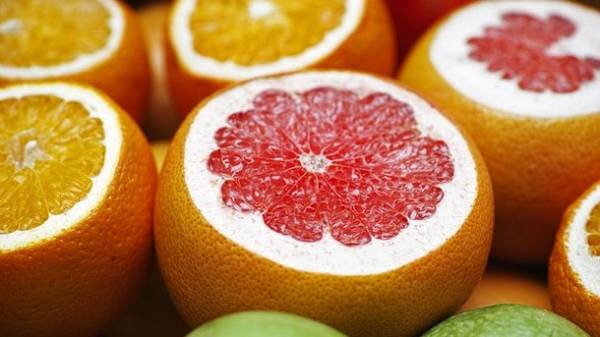
Spring – it’s time to move on light clothes and to start preparing for beach season. Gyms are overcrowded and diet become a normal phenomenon.
Trying to lose weight, people may resort to various methods, but not all of them are effective, reports “New time”.
Researchers at the University of Newcastle, Ashton, Megan Rollo and Rebecca Williams, as well as associate Professor at the University of Newcastle Tracy burrows debunk some widespread myths about dieting that by themselves they will not disappear.
1. In celery has no calories
In the stalk of celery length 15 cm contains 19 kilojoules (or five calories). To digest it, your body uses only 10% of the total weight of celery in kilojoules (this is called thermal effect of food). In fact, it’s one or two kilojoules.
The only product in the world without the calories – cold water. To be absorbed by the body, it must be heated to the temperature of the human body. On heating leaves a certain number of kilojoules. In the water contains no kilojoules at all. Accordingly, as a result we lost of calories.
2. If you don’t eat after 7 PM, you will lose weight faster
When you eat is not as important as what you eat and in what quantities. You gain weight lose it or maintain at the same level, determines the overall number of kilojoules consumed and level of physical activity during the day. Therefore, as a repetition: it doesn’t matter when you eat. The main thing is that if you consume more kilojoules than you need, the body will delay them as fat.
Recently it was discovered that frequency of eating is one, two or three servings a day – had virtually no effect on body weight.
Some studies show that the use of the most part a daily intake of kilojoules closer to the evening leads to deterioration of control of blood sugar levels. But we are talking about the short-term studies, these findings still need to confirm the long-term. The advantage of an earlier “closing the kitchen” that thus you eat less. In particular, eat less junk food and alcohol.
3. If you drink water before eating, will lose weight
For some it works. In a recent survey, the proportion of obese people were asked to drink 500 ml of water half an hour before Breakfast, lunch and dinner. The other half of the participants had half an hour before eating to imagine that their stomach is full.
The experiment lasted 12 weeks. Both groups lost weight, those who drank water dropped by 1.3 kilograms more.
A review of other studies have shown that the effect of drinking water on the energy level and metabolic rate of a person can be very different. Someone the results were negative, the other is zero, the third is positive. What is clear is that water helps to reduce the total number of kilojoules for the day, if you drink it instead of soft drinks, juice, etc.
4. Ketogenic diet better than other diets
The ketogenic diet is high in fats and protein while reducing carbohydrate intake. A meta-analysis of 13 studies that lasted at least one year, showed that the people sitting on a ketogenic diet, lost only 900 grams more weight than those who were on a diet low in fat.
Another systematic review investigated the effect on appetite of the person two types of diets aimed at weight loss.
A meta-analysis of two studies of the ketogenic diet, which limited carbohydrate intake, showed that it really reduces the feeling of hunger and reduces appetite. But studies of three diets that restrict calorie intake to 2500 kilojoules a day, showed that they are much stronger reduce the feeling of hunger while providing a much stronger feeling of satiety.
These diets are very restrictive and should only be used under medical supervision because of potential side effects, including headaches, bad breath, gallbladder disease and constipation.
5. Chewing gum speeds up weight loss
Chewing sends a signal to the brain that you started eating and soon you will be satisfied. 60 adults participated in the study, to determine how chewing gum affects the appetite of the person.
It was found that chewing gum lowers the calorie consumption of the lean people but tend to increase food intake in people with obesity.
A meta-analysis of 13 studies has shown that gum chewing really leads to a decrease in feelings of hunger. Moreover, 10 of the 16 experimental studies have proved that chewing gum also reduces food intake. However, the published results disproportionate: most see the light of those studies that showed a positive effect of chewing gum.
6. To burn more fat, you should not eat before training
Whether there is a pre-workout? Opinions about this differ, but there is research that compared the total energy consumption and amount of burned fat, and carbohydrates before, during and after exercise in 12 healthy active men.
They were tested after an overnight fast, and the next day after Breakfast. Fasting before a workout gave a great 15% the rate of burning fat during exercise than after Breakfast. However, the Breakfast led to increased energy consumption by 20% compared to fasting.
7. Green tea speeds up metabolism
A review of 15 studies of the effect of green tea on weight reduction and weight maintenance at the same level among obese people showed that in the long run, it has no little or no effect.
However, it was recently discovered that any tea or tea extracts lead to a small positive effect on weight loss in adults with metabolic syndrome. However, these results should be treated with caution due to the low quality of many included in the review studies.
8. The grapefruit breaks down fat
No need to run over a grapefruit. A meta-analysis of three studies on the effect of eating grapefruit on a person’s weight showed no changes in body weight.







